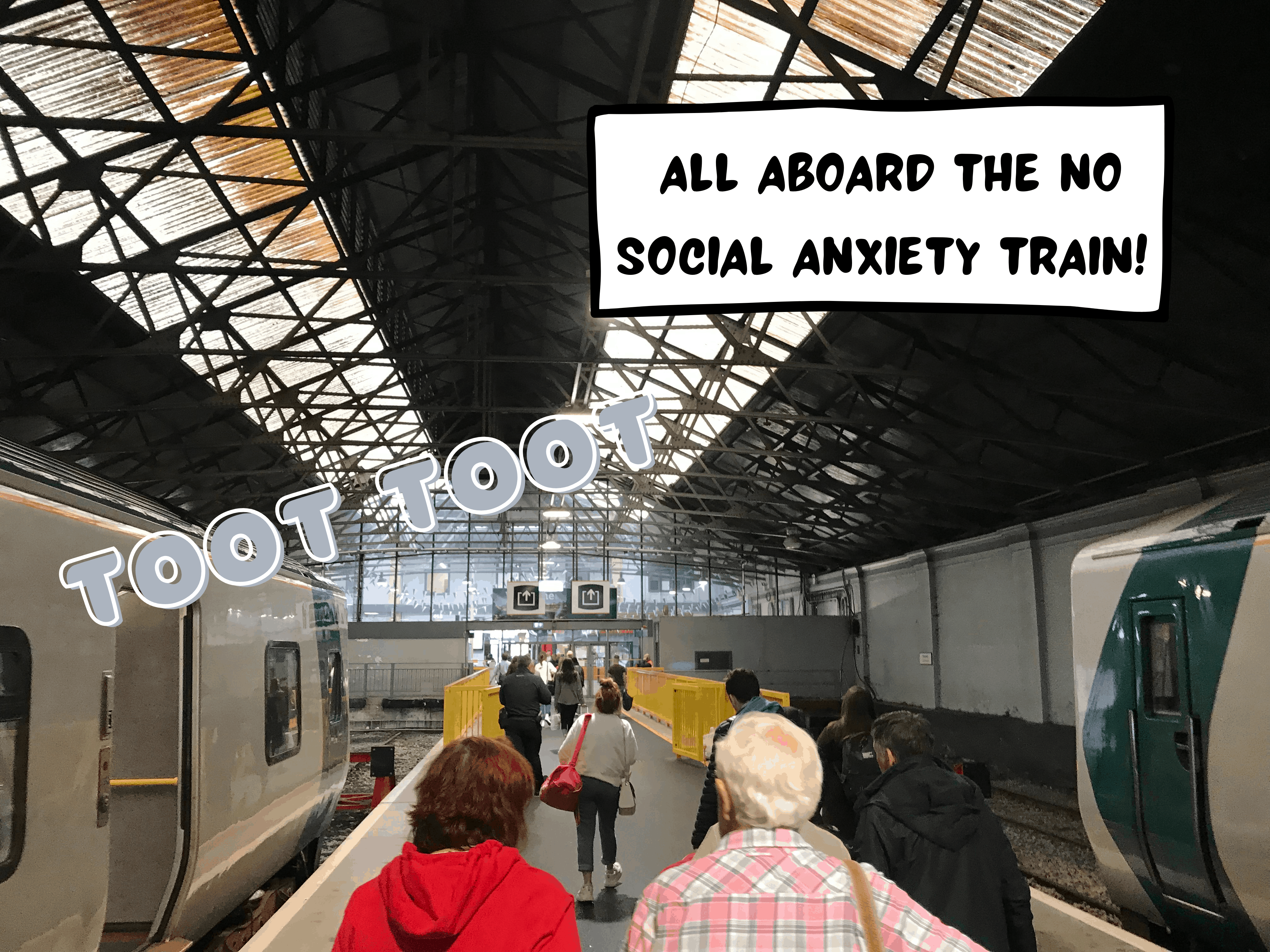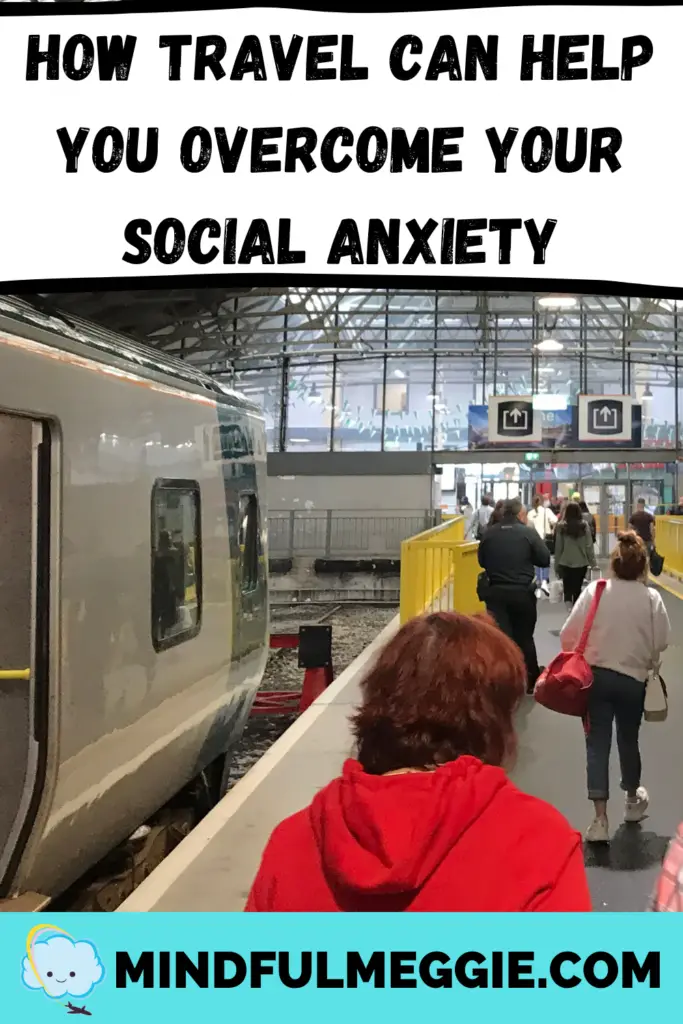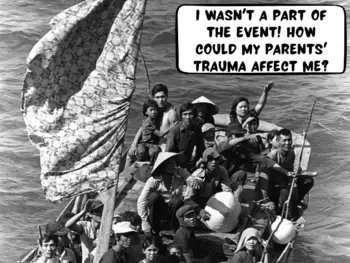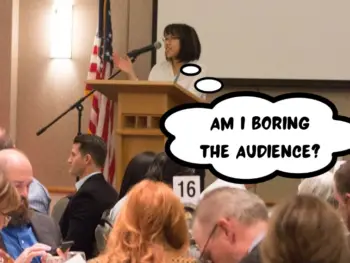
Posted: January 6, 2021
Although humans are social beings, those who have social anxiety have extra hurdles to face. This mental illness makes you feel like people are finding ways to judge you. As a result, you feel super self-conscious and fret about everything you say and do. Social anxiety bullies you with the false illusion that the world is against you. You’re left with low self-esteem, shame, and sadness.
When I was growing up, I noticed I became increasingly self-conscious in social settings, especially during my high school and college years. I didn’t even have to say anything to anyone — my presence alone made me nervous. I constantly worried about others around me, hoping that I wouldn’t appear as a dummy, a loser, even a pervert.
I felt stuck in a rut whenever I found myself in a social setting…..until I traveled somewhere.
At first, it seems contradictory. Most people, whether they have social anxiety or not, perceive travel as a brave undertaking. After all, you’re meeting strangers of different backgrounds and cultures. You have to talk to them if you want to become friends or need help, directions, and advice.
But remember — you are a stranger, too!
You’re a fish out of water so you might as well accept, even embrace, it. Except for following customary, cultural behaviors to show your respect, you experience freedom from societal expectations as a traveler.
Want to glance at walking passersby? Stop and observe the beauty of the place? Approach strangers to chat? It’s all acceptable because you are new here. In fact, as a traveler, you are supposed to explore and stand out. When you allow yourself to live like this, social anxiety has a weaker basis. It has a harder time creating excuses for you to follow socially anxious thoughts.
Whether I was strolling around a small city in Ireland, both looking lost and in awe, or people watching from a Puerto Rican streetside eatery, I didn’t feel so nervous, even if my wandering, curious presence was obvious to others. Whenever socially anxious thoughts came to my head, trying to degrade me, they held much less weight because I cut myself more slack — I reassured myself that standing out is normal while on the road.
Locals have a sixth sense — they know a foreign traveler when they see one. Anytime locals see me looking at them, I doubt they’ll think I am a pervert. In fact, they may be more curious about me than vice versa!
For example, while in Ireland, some locals approached me, asking “Where do you come from? How long are you visiting Ireland?” Their curiosity comforted me, as if my presence was welcomed and acknowledged. I was more than glad to respond! When this happened, social anxiety became even weaker.
While on the road, you don’t have anyone else to talk to but strangers, especially if you are traveling solo! Locals and fellow travelers alike are willing to chat, but you will have to speak up first.
I had an hour to spend on a train ride from Dublin to Limerick, Ireland. I happened to sit next to an elderly lady who wasn’t buried in her phone or the newspaper. Because I prioritized my prime chance to speak to a local Irish person and fulfill my curiosities, my social anxiety couldn’t control me. This exact scenario would never happen again. I didn’t want to waste my opportunity. I wanted to know her story, why she was headed to Limerick, and get my questions about the Irish language answered.
Even before starting the chat with her, any socially anxious thoughts that came to me failed to cause harm because I acknowledged and accepted my foreign presence as a knowledge-seeking traveler. I couldn’t hide any of it, even if I tried. I had an obvious Asian face, wore clothes that stood out, and spoke with an American accent. The dead giveaway was my picture-taking through the window. Snap, snap, snap!
If I had no shame with my traveler presence, I could bring this same attitude in my social ability. But how would I commence the conversation?
Sometimes, my social anxiety starts formulating conversation-starters before I speak. It tries too hard, often creating a road map of minute details, such as my introductory sentence. Whenever I blindly follow the map, I have to keep complying to its expectations throughout the conversation, exhausting me. Sometimes, it can make the conversation awkward and askew, which only gives my social anxiety one more reason to make me more anxious the next time around.
Instead of listening to maps, I have to trust the natural phrases coming out of my mouth. They keep me at ease and turn out okay.
In that rolling train car, guided by my inner curiosity and reassurance, I spoke a simple “Hello, how are you?” to the Irishwoman. She was delighted to exchange a talk. My social anxiety will see the happy result and think, “Wow, there was no logical reason to worry about starting a talk.”
By the time we winded down our conversation, I commended my effort to speak first because otherwise, nothing would have unfolded and I would have stayed stuck in an empty bubble of isolation.
I understand that your social anxiety acts like an intimidating, invisible wall preventing you from speaking to a local. Its sole purpose is to protect you from so-called “danger.”
But my conversations with locals never had any real dangers lurking around. The more I engaged in talks, the less reasons I had to listen to my socially anxious thoughts.
Dear traveler, volunteering yourself to venture in new places surrounded by locals makes you feel braver in itself. Use this natural bravery to your advantage and let it manifest in moments when you converse with others.
Remember — there is no “danger” from trying to talk. You have nothing to lose. The worst that could happen is that the local seems disinterested and doesn’t engage in the talk. It’s not about you, it’s them. I find that the desired outcome — the local is willing to speak — is much more common.
The prospect of talking with other travelers may stir up your social anxiety, too. Degrading thoughts such as, “What if they don’t like me? I’m not worthy enough to be their friend,” come to your head. I’ve had them, too.
But based on my experiences, it is easy befriending them because they are in the same boat as you. Although we may have different, specific travel goals in mind, we all share a collective bond — our drive to explore the world and meet new people. The camaraderie reminds you of your values as a traveler. In turn, you believe in your social ability more than you would in a familiar place.
Have faith in this camaraderie, even if you’re feeling nervous emotions, and just let a conversation happen. The results are worth it.
During my study abroad trip in Costa Rica, my classmates and I shared a whitewater rafting excursion with an elderly couple from, of all places, Germany. Between us students and the couple, we had differences aplenty, including our age, national background, and overall trip itinerary. But we were all here for the same reason: Costa Rica’s vivid, natural landscapes had to be seen before we died!
A social ability is a fundamental component of human life, which is why the travel memories most dear to us usually involve a social interaction or a new friend. When I reflect on my previous trips, I am fortunate for travel’s natural tenacity to help me overcome my social anxiety because I can come home with stunning travel stories and unforgettable encounters with others. When I recall the Irish railway journey, the Irishwoman is fresh in my memory. Likewise, when I think of Costa Rican whitewater rafting, I can’t help but remember the German couple.
You, too, can harness this tenacity and become the traveling hero in your journeys.
Travel will not automatically fix your social anxiety though. There is no such thing as a quick fix for any mental illness. Make sure you have a doctor/therapist to guide you through recovery and take small steps when exposing yourself to triggers. You have to understand how your mind rates the severity of certain situations. If conversations during your travels give you only slight anxiety, they could comprise of your first steps.
Otherwise, if you dive headlong into a challenging situation you’re mentally not ready for, you could experience an emotional hangover, which is an overwhelming bout of emotions that will wear you out and potentially revert you back to negative thinking patterns. If conversations during your trips induce severe anxiety, don’t jump right into them until you’ve had enough help from your medical professional and practiced in less severe exposures.
When you’re ready, befriend locals as you’re learning more about the place you’re visiting and their stories.
Befriend travelers, remembering that you all share a passion of world exploration.
Even when you have returned to your familiar settings, your travels have left a mark on you. It’s fostered newfound confidence in your social ability while reducing social anxiety’s grip. Don’t underestimate the social influence from traveling.




 5 Reasons Making Travel a New Year’s Resolution is a Bad Idea
5 Reasons Making Travel a New Year’s Resolution is a Bad Idea